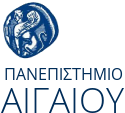Marine Policy and International Law of the Sea have functioned as a driving force of the international system, in light of the fact that it is a cornerstone for states’ achieving regional and global hegemony and, ergo, to expand their sovereignty, sovereign rights, and jurisdiction, at sea, as it not only facilitates their flexibility, but also functions as a means of power projection via navy force. Throughout history, states have been the main protagonists and agents of international society and their actions have played a key role in the development and evolution of the international community. It cannot be defuted that, despite the fact that international relations are a zero – sum game, which means that any shift in the equilibrium is synonymous to a global shift, even nowadays the international society is a field of conflicts among the most powerful states, whose utmost objective is to ensure their safety, acquire greater expansion, have access to more natural resources, and to enhance their position at the
international system.
The Middle East and the countries that make it up have served since humanity’s birth to this day, as the theater of action of civilizations, the field of development and imposition of the great racial and religious movements and the "bone of contention" of the Great Powers. The peripheral issues that plague the Middle East are deeply rooted of history. This area is the great gateway to the crossroad uniting East and West and holds the "key" to energy wealth that feeds and moves our technocratic and globalized culture.
However, what is the purpose of linguistics and Critical Discourse Analysis and how can they be implemented in our research? In everyday life most of us tend to focus on the content and information of what we hear. Nonetheless, there are other aspects of language that develop in parallel with the transfer of content and information. For example, the way an event or actors are narrated, or even the use of metaphors can convey subconscious messages while revealing elements of the speaker's identity, i.e., conclusions can be drawn through speech. Specifically, the particular branch constitutes a function of linguistics, psychology, neuroscience, and anthropology.
The present thesis aims at researching the link between the special characteristics of the Middle East (particularly Iran) and South-eastern Europe with common geopolitical strategies and Critical Discourse Analysis. In a nutshell, the current thesis is developing an interdisciplinary approach which brings together traditionally “uncorrelated” disciplines such as marine policy and linguistics.
 University of the Aegena
University of the Aegena
